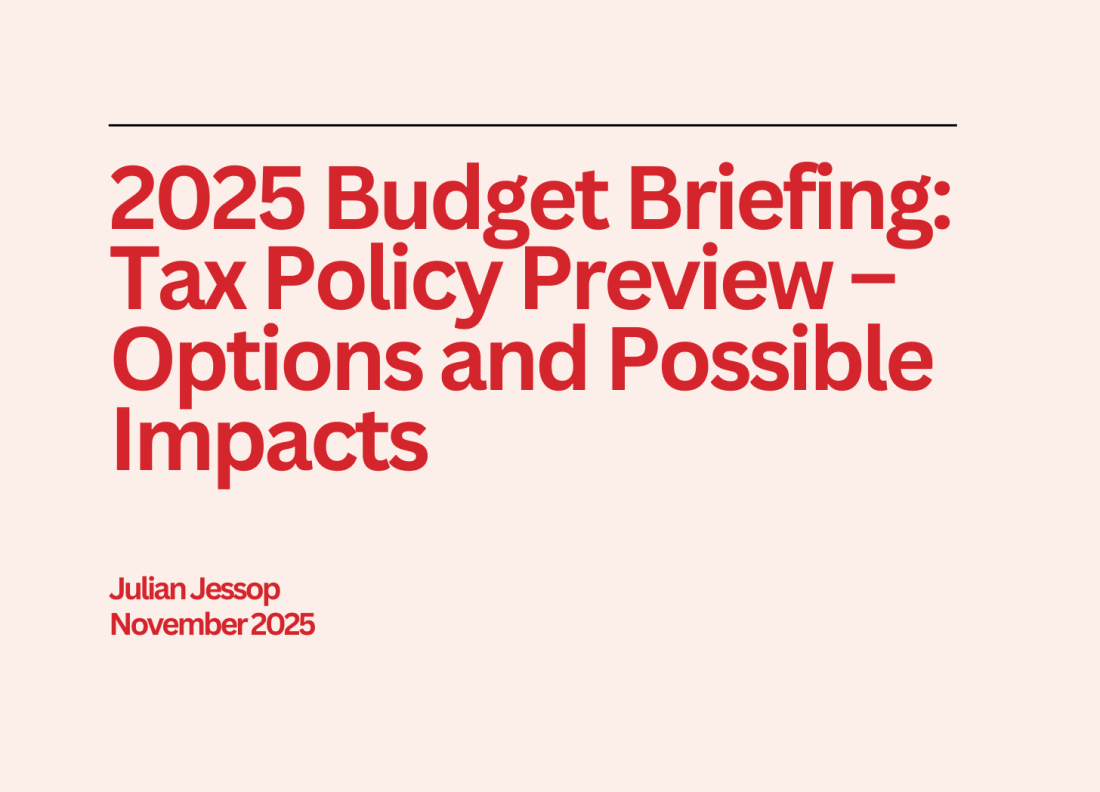|
2025 Budget Briefing Tax Policy Preview – Options and Possible Impacts
Ahead of Wednesday's budget, what are the Chancellor's options?
Chancellor Rachel Reeves will likely fill the gap with broad-based income tax increases and a ‘dog’s breakfast’ of smaller measures
Root cause is spiralling public spending – not productivity downgrades or economic shocks
Tax revenues from multiple small changes are unreliable compared to simpler increases in income tax or VAT
New analysis published today by the Institute of Economic Affairs reveals Chancellor Rachel Reeves faces a financial hole of up to £30 billion ahead of Wednesday’s Autumn Budget, which she will probably attempt to fill through broad-based increases in taxes on income alongside numerous smaller tax changes.
The briefing paper, ‘2025 Budget Briefing: Tax Policy Preview – Options and Possible Impacts’ by Julian Jessop, explains how this gap has opened up since the March 2025 forecast and assesses the Chancellor’s options for closing it.
The single largest component of the £30 billion hole – approximately £20 billion – reflects a long overdue downgrade to the OBR’s forecasts for productivity growth. However, the remainder results directly from policy decisions made by the current government, including abandoning the £5 billion welfare savings package announced in Spring and spending any favourable economic assumptions rather than banking them to reduce borrowing.
The Chancellor is expected to extend the freeze on personal tax thresholds beyond 2028, raising £8-10 billion through the effects of fiscal drag. The remaining £20 billion would come from what Jessop describes as a “dog’s breakfast” of smaller measures – potentially including increased Council Tax on higher-value properties, closing Capital Gains Tax loopholes, new taxes on partnerships (LLPs), levying National Insurance on rental income, and increased ‘sin taxes’ on gambling and sugary drinks.
The analysis warns that revenues from such a patchwork of smaller tax increases are inherently unreliable. Behavioural responses mean the actual revenues raised would be much less dependable than those from simpler increases in broad-based taxes like income tax or VAT. The taxation of wealth is particularly difficult because assets are harder to value than cash payments, while ‘sin taxes’ that aim to discourage activities whilst raising revenue from them often end up doing neither.
More positively, the Chancellor is likely to increase fiscal headroom to provide a larger buffer against future shocks, and many tax increases would be ‘backloaded’ towards the end of the forecast period rather than taking effect immediately.
Julian Jessop, Economics Fellow at the Institute of Economic Affairs and author of the briefing, said:
“This year’s Budget is set to be just as painful as the last. The Chancellor will attempt to fill a new hole of perhaps £30 billion with broad-based increases in taxes on income and from a dog’s breakfast of many smaller measures.
“This hole is not entirely of the Chancellor’s making. Most of the shortfall reflects a downgrade to the OBR’s projections for trend productivity growth, which is arguably long overdue. She will also want to increase the buffer against future shocks by raising the fiscal headroom above the low levels inherited from the previous government.
“Nonetheless, this should have been done by curbing the growth of spending, rather than by increasing the tax burden even further. Relying on a dog’s breakfast of many smaller tax changes is also more likely to backfire.”
You’re currently a free subscriber to Insider. For the full experience, upgrade your subscription.
Paid subscribers support the IEA's charitable mission and receive special invites to exclusive events, including the thought-provoking IEA Book Club.
We are offering all new subscribers a special offer. For a limited time only, you will receive 15% off and a complimentary copy of Dr Stephen Davies’ latest book, Apocalypse Next: The Economics of Global Catastrophic Risks.
